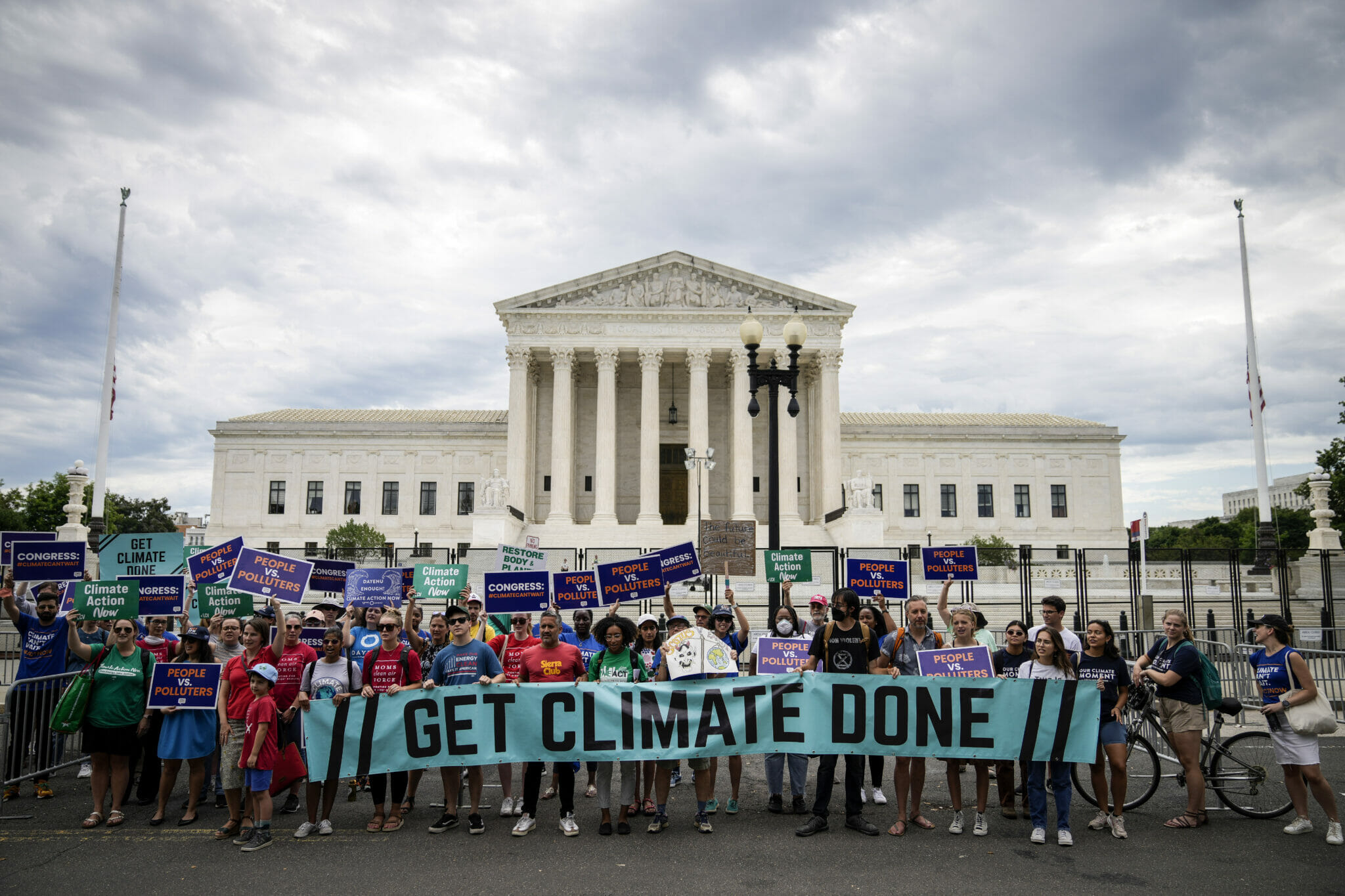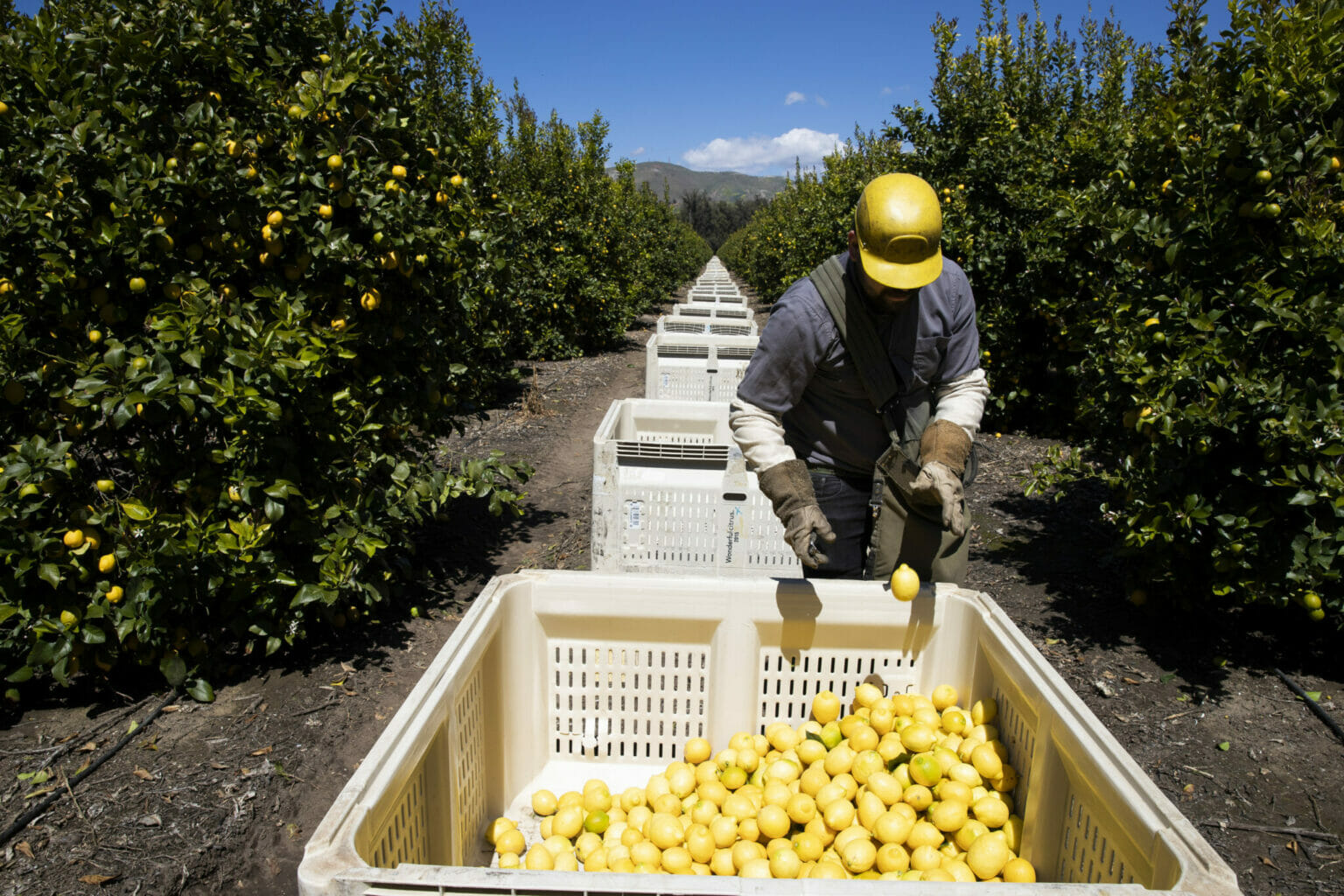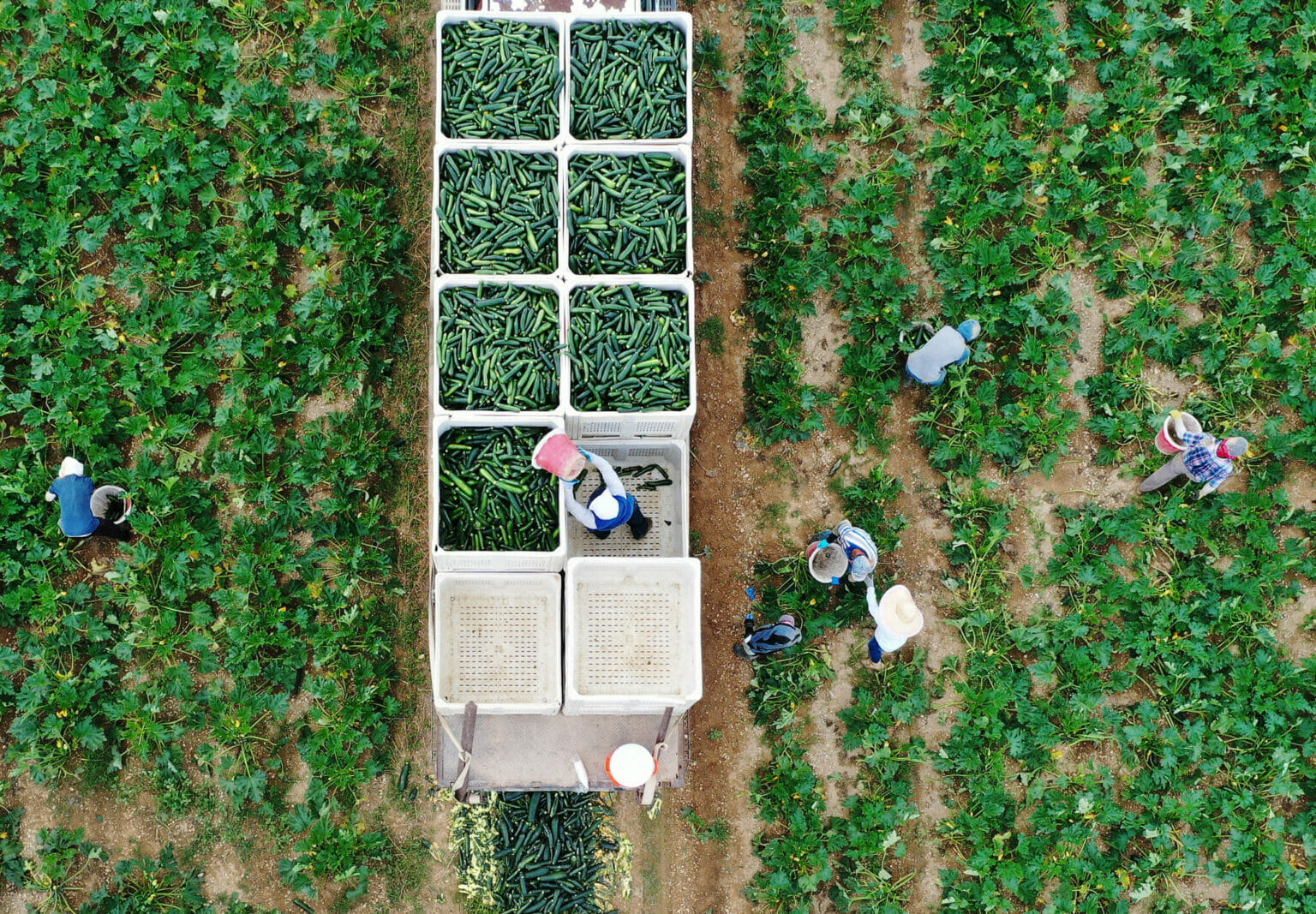Sign up to receive our weekly newsletter
Last week’s US Supreme Court decision to limit the federal government’s authority to regulate greenhouse gas emissions from power plants will unquestionably make it harder to defuse the climate emergency. It’s not game over — President Joe Biden still has an array of executive actions he can take, and the US Congress might yet pass some form of climate legislation this session — but the gravity of the court’s ruling will be felt worldwide. Here is some particularly insightful coverage of the implications of the SCOTUS decision and what comes next:
- For ‘Hot Take,’ Amy Westervelt breaks down how the West Virginia v. EPA decision was narrower than might have been expected from this court — though it also served up warning of worse to come — and explores specific options the Biden administration still has to curb greenhouse gas emissions, in the absence of meaningful climate legislation from Congress. (On the latest episode of the ‘Hot Take’ podcast, Westervelt and co-host Mary Annaïse Heglar discuss the same; and on ‘Pod Save America’ last week, Westervelt discussed the SCOTUS decision with host Dan Pfieffer.)
- SCOTUS might have limited the EPA’s authority under the Clean Air Act, but for Inside Climate News, Marianne Levelle suggests the narrow decision might unintentionally invite more aggressive — and costlier — attempts at regulating carbon emissions than the plan the decision rejected. And it will take more lawsuits and maybe years to find where exactly SCOTUS views the EPA’s authority beginning and ending.
- On PBS NewsHour, Amna Nawaz digs into the human consequences of the SCOTUS decision. Hit “first and worst,” says Mustafa Santiago Ali, a former director of the EPA’s Office of Environmental Justice, will be communities of color and lower-wealth white communities: “When we look at where these coal-fired power plants are located, they’re usually located close to our most vulnerable communities, thereby impacting their health, extracting wealth from those communities.”
- On the world stage, the decision calls into question the US’s ability to meaningfully lead on climate. As Oliver Milman reports for the Guardian, international leaders condemned the decision in frank terms, saying it “flies in the face of established science” and calling it a sign that “backsliding is now the dominant trend in the climate space.”
- For The New York Times, columnist Paul Krugman calls the SCOTUS decision a brazen act of “fealty” to the Republican Party — and identifies partisanship as the “central problem” of climate policy. “What’s important right now,” Krugman writes, “is that the United States is the only major nation in which an authoritarian right-wing party … has the ability to block actions that might prevent climate catastrophe.”
FROM US
‘Food & Water’ joint coverage week. Thanks to all who participated in our ‘Food & Water’ coverage event, June 27 to July 1. We encourage everyone to check out coverage highlights on our project landing page, including interviews with Gabriela Bucher, head of Oxfam International, and Jennifer Morgan, Germany’s climate envoy.
Press briefing: Climate, hunger, and the future of food. Last Wednesday, a panel of experts spoke to journalists about climate’s role in the growing food crisis and solutions to help improve our food systems. Here’s a recording and transcript of the briefing.
NOTEWORTHY STORIES
Sacrifice zones. Sea-level rise threatens to unleash the toxic remnants of an old naval shipyard on residents of the surrounding, historically Black neighborhood. Now, community members — many of whom test positive for toxic chemicals, as a result of the shipyard — are calling for reparations and a clean-up, to preserve their home. From KQED, by Ezra David Romero, part of a new series called “Sacrifice Zones.”
Trust in meteorologists. Some TV weathermen and women were slow to the climate story, but increasingly the profession is first to make the connection between local weather and climate change. “We’re scientists.” says Jeff Berardelli, the chief meteorologist and climate specialist at WFLA in Tampa. “We’re a trusted messenger of information in local markets. … [There] seems to be no one better than a local meteorologist to tell the story of climate change.” From PBS NewsHour, by Miles O’Brien.
Climate attribution. Using clear terms that any non-scientist will understand, ‘All Things Considered’ delves into how scientists use powerful computing, high-tech satellites, and new math to show how events such as last summer’s killer heat wave in the Pacific Northwest would be “virtually impossible” in the absence of climate change. From NPR, by Rebecca Hersher.
Expanded drilling. The Biden Administration last week unveiled a draft plan to expand oil and gas drilling in Alaska and the Gulf of Mexico, further walking back the president’s campaign commitment to end fossil fuel development on public lands. From Grist, by Emily Pontecorvo.
Waste not. What would it mean to live waste-free in China? The country’s popular online shopping and food delivery platforms have pushed green initiatives to help consumers lower their emissions footprint, but experts say the results are slow and inconsistent. So, some young people are taking the burden of change on themselves, producing as little as one half-kilogram of waste over six months. From Bloomberg News, with John Liu and Karoline Kan.
REPUBLICATION RECOMMENDATIONS
The following stories, all from our ‘Food & Water’ joint coverage week, deserve special consideration for republication by CCNow partners:
- Meat, monopolies, mega farms: How the US food system fuels climate crisis – By Amanda Schupak, for the Guardian
- As heat rises, who will protect farm workers? – By Bridget Huber, Nancy Averett & Teresa Cotsirilos, for Food & Environment Reporting Network
- ‘People need access to fresh food.’ – By Angely Mercado, for Nexus Media News
- The Indigenous Food Cafés Transforming Local Cuisine – By Anne Pinto-Rodrigues, for Yes! Magazine
For partner outlets: The full list of stories available for republication and instructions for republishing can be found in our Sharing Library. To submit stories for sharing, please use this form.
ODDS & ENDS
Climate opinions worldwide. The Yale Program on Climate Change Communication is out with a new survey of international opinion on climate change, a great companion to the organization’s US public opinion surveys, which have been indispensable for journalists. Of note: Respondents of Finland report knowing the most about climate change, but they’re the least likely in the world to consider joining a group for climate action (only 9% would). By contrast, three-quarters of respondents in Malawi and Zambia (75% and 74%, respectively) say they already are or would participate in a climate action group. Check out the full survey.
New digs for Climate Central. Our partners at Climate Central have a new website, complete with “new features that make it easier to find Climate Central resources,” new Spanish-language content and search functions, and updated extreme weather toolkits. See what else is new.
University of California Center for Climate, Health, and Equity. To celebrate its launch in May, this new center, which is housed at UC San Francisco, hosted a series of stellar webinars, on the intersections of climate change and health with the fossil fuel industry, public education, mental health, and more. Watch the complete series.
Jobs & Opportunities:
- Floodlight is seeking a Louisiana reporter and a Gulf Coast editor.
- Grist is hiring a climate solutions writer.
- Vox is hiring a climate editor.
- Climate Now, a 2022 Webby Award-nominated multimedia platform focused on explaining key topics in climate and energy science, is hiring an editorial director.
- The Pulitzer Center is accepting applications for the 2022 Indigenous Photograph Grant, which provides $5,000 to support an Indigenous photographer’s storytelling.
If you have any feedback on this newsletter, or know of information that should be included here, shoot us a note at editors@coveringclimatenow.org


